Charles Pakana (Victorian Aboriginal News): As I’ve mentioned previously, referendums and political campaigns can bring out, well, the worst in journalism and of course, campaigners. And as the various campaigns continue in the lead up to the referendum, many journalists may unfortunately favour the sensational in order to attract clicks, likes, and of course shares. Well, over the past weeks and months, SBS has been developing what it believes to be a comprehensive strategy to provide fair coverage of events in the run up to the 2023 referendum. Joining me today on the Referendum 23 Tapes is Tanya Denning Orman, head of NITV, and Director of Indigenous Content for SBS. Tanya, thank you for your time.
Tanya: Thanks for having me, Charles.
Charles: Tanya, what is it about the SBS strategy that you and your team believe will position the network’s coverage as fair and equitable information provision?
Tanya: The strategies and elevation of what we do every day as a network, actually, we’ve been building to this point since NITV moved in the building more than 10 years ago now, being that we have our indigenous perspective of news delivered through our NITV news programming, but also utilising our community elevations through the multicultural communities that we are already communicating to. So in more than 68 different language groups from Arabic, Mandarin, Cantonese that we also deliver out to.
So our unique positioning with this strategy with referendum ensures that we’re delivering indigenous perspectives of this discussion, but also connecting to all Australians, no matter the language they prefer to consume their information from in the trusted way that they like to receive it. We’ve adjusted the business accordingly, however, so it’s not a normal every day year. This is a massive year, not just for First Nations people. This is an important year for all Australians. And critically the result at the end of this year, well, this time next year, we know whether it’s a yes or a no we’re going to be facing a very different Australia. So the organisation has been working to this point. We have a number of changes that we are doing. I’m happy to talk more into that and really excited. I think if we were facing a referendum 10 years ago, we wouldn’t be as strongly positioned as we are today.
Charles: Well, you mentioned changes. Well, let’s not put it off till later. What are some of those changes within the organisation?
Tanya: We have a referendum unit. So we have a specialist unit that we’ve adjusted with subject matter experts from around the business, but with a particular focus. And when I say focus with the referendum, there’s layers to that. It’s understanding our shared history as Australians with First Nations and the settlement’s history, the colonisation history, that’s really important. But also our civics, ensuring we’re delivering out an understanding what is the constitution, what is the rule book? What is the understanding? Your obligation? So the layers of it. And then of course, understanding what is yes, what is no, what does that impact, why does it matter, and why should we care to be a part of this? So ensuring we’re delivering the facts, all the stats, the information as people need it and want it, they’re asking for it daily. So we’ve got a particular research team sorted out within the organisation to help ensure that we’ve got the latest information.
And as I mentioned earlier, what’s really critical is we’ve got our trusted audiences already. So we want to make sure we’re delivering the information, whether it’s to First Nations people from our perspective, and then also across over to World News to a wider Australian audience, and then taking that information and delivering it out into the languages newer Australians are wanting the understanding to come from. So, we’ve also excitedly reformatting one of our leading current affairs shows in the organisation, The Point, so The Point will be premiering back on our screens. It’s starting to deliver out on digital, but the program will come out on our screens from Reconciliation Week, so the end of May. And what we’re doing with that program is it’s The Point Road to Referendum. So for the rest of the year, we’ll actually be going out into communities with that program.
Of course, our other news and current affairs products will ensure we’re getting the latest from Canberra, latest from key leaders and influencers. But what’s really important for us is to have elevation of voices in their communities so we can really understand and talk through them about what they want to know, why does it matter as I mentioned, what is the truth telling component of this narrative for this very unique historical moment, this referendum we’re about to face, understanding that at the local level, there’s been a lot of that discussion. So that’s what we’ve heard from our communities, our audiences, is the lack of localised discussion. And really, at the end of the day, what is the impact at the ground level?
Charles: One of the obvious issues I think in media coverage across the board of the referendum to date, is the fact that journalists, too many of the journalists simply don’t even know the material. A, they probably haven’t even read the Uluru Statement from the Heart and it seems all too clear that far too many of them haven’t even read the executive summary of the 2021 co-design report authored by Calma and Langton. So what’s being done within SBS and NITV to educate your journalists and producers on these all important documents and facts?
Tanya: Oh, look, we have regular training and info sessions that we are providing to our team. So from understanding our codes, where we can go, but then also more, as you mentioned, understanding the facts of the programming or the issues that they’re reporting on. So part of our referendum unit is bringing in special speakers and delivering data and information out. So they’re really actually understanding the answers prior to the questions that they’re asking of people so they know what they’re talking about, but importantly how they can shape what they’re reporting on and make it make sense to their audiences. So yeah, there’s a lot of work happening with the journalists. You’re right. What my concerns are are the impacts. This is a critical year for journalists to absolutely get this right, not jump on scare campaigns, or I think the discussions in Australia could lead in a way that we haven’t seen since the WiK decision or off the back of Mabo.
So when there …the way reportage was indicating we were stealing backyards and the like. So all that scaremongering is really important that journalists are not jumping on those sort of campaigns that are actually just delivering, they have an ethics that they need to get this right. They need to make sure that they’re doing their jobs in the right way. So what we’re doing at SBS and NITV is equipping our team and ensuring we have accountability. We’re cross checking weekly. We are wanting to ensure we’re getting all voices. And as you mentioned, the facts are critical, more critical than ever before I believe.
Charles: And Tanya, what many people seem to avoid or forget is that the next six months or so leading up to the referendum is just one part of the political and social equation resulting from this. Now, if the referendum does get up, what are the plans for coverage on a more local and regional level in the years going forward as the various local and regional voices are established because they’re critical to the formation of the national voice?
Tanya: Yeah, that’s it. Look, as I mentioned earlier, we’ve really evolved every year as an organisation, and I’m super proud of how far we’ve come as an entire SBS network. We’re really taking the power of our First Nation cohort of journalists and producers that we have at the heart of the organisation and how then we work with our different programming platforms and also our different communities as part of the multicultural network. So this story and this understanding, as you say, goes beyond the actual vote in a referendum. It’s the impact of leading to it, understanding it, what happens on the date. We’ll be making that sure we’ve got the coverage. We’ll also be decompressing, debriefing after the actual vote, and then obviously the new dawn, whatever that new dawn’s going to be. We have journalists placed around the country. We work with our First Nations media. We want to ensure how this actual mechanism, if it is a yes, how is that going to work?
And also keep to that accountability of what the federal government committed to with it. If it is a no, what is the next steps for communities? Is it, Noel Pearson indicated it’s been left to the next generation. So what is that next movement if it is that no? How we go forward after that vote day really does rely on how journalists also are reporting and keeping indigenous affairs on that agenda and not just letting it slip either. It’s how we’re all facing to be a different Australia and what does it actually mean? Yes or no.
Charles: Tanya, last question before I let you go. I know you’re an incredibly busy person, but when it comes back to your journalists again, and we’ve got to address this particular issue, I know that over the years that SBS, NITV has built up an enviable stable of Aboriginal and other First Nations journalists. What is being put into place within the organisation to, in a way protect a lot of your journalists? Because some of them are going to be going to fairly culturally emotional situations. They’ve got to have thick skins. So what’s being done to support them on the frontline?
Tanya: That’s right. I think you’re a certain type of person to go into journalism and a certain type of person to get through that career. How you are working through the fact that you are reporting on issues that you also go home to or that you are so accountable in a way that other journalists aren’t. So we implemented, almost two years ago now, an Elders program. I think we are the first media organisation in Australia to have an elders in residence and an elders program. And what comes with that is influence across Auntie Rhoda Roberts works closely with me helping and advising, but she’s there for our First Nation stuff. She’s there for all our SBS staff and some of them never have had an elder before. But particularly working with us. And we engage with other elders around the country. We’ve worked with Uncle Richard Frankland down in Victoria.
So it’s not just all roads lead to Auntie Rhoda, it’s about her place. That’s a lot also. So we have a safety program, a community program also for our team. We’re all going to be the subject matter, no doubt, to backyard barbecues again. And even if you’re not a journalist, how are we going to be equipped to even answer those general questions? But if you’ve got that accountability and responsibility as a First Nations journalist, what are we equipping them? What’s our resilience strategy? How are we supporting each other and how are we making our incredible superpower and giving it the absolute strength that it needs so that we can get through this year not feeling, “Oh my goodness, we just got through the finish line,” but actually feeling, “Wow, we’ve really done our ancestors proud,” who we stand on the shoulders of those who fought for us to have a First Nation’s voice in the Australian media landscape.
And as I mentioned earlier, we’re in such a strong position that we’ve never been before in our history. Not only have we got a strong cohort within NITV, but around other organisations, there are more journalists, more faces popping up. So that is something really powerful that in a year that Australians are yet again going to make a decision on the future of how First Nations politics is dealt with. We have a media and a journalism task, a group that are able to keep to account and ask the questions that we know we need them to ask. So that’s really exciting. But you’re right. Great question. How we get through this year has to be at the forefront. And I want to get through this feeling super proud of how we’ve looked at it, strategised about it, done some action about it, knowing that we’re going to be leading into this place where Australians need to know what is actually going to happen and why does it matter?
Charles: Well, Tanya, on that note, I know we’ll be speaking again in a few months’ time as we get further down the road and closer to the polling. Thank you so much indeed for your time.
Tanya: No, thank you.


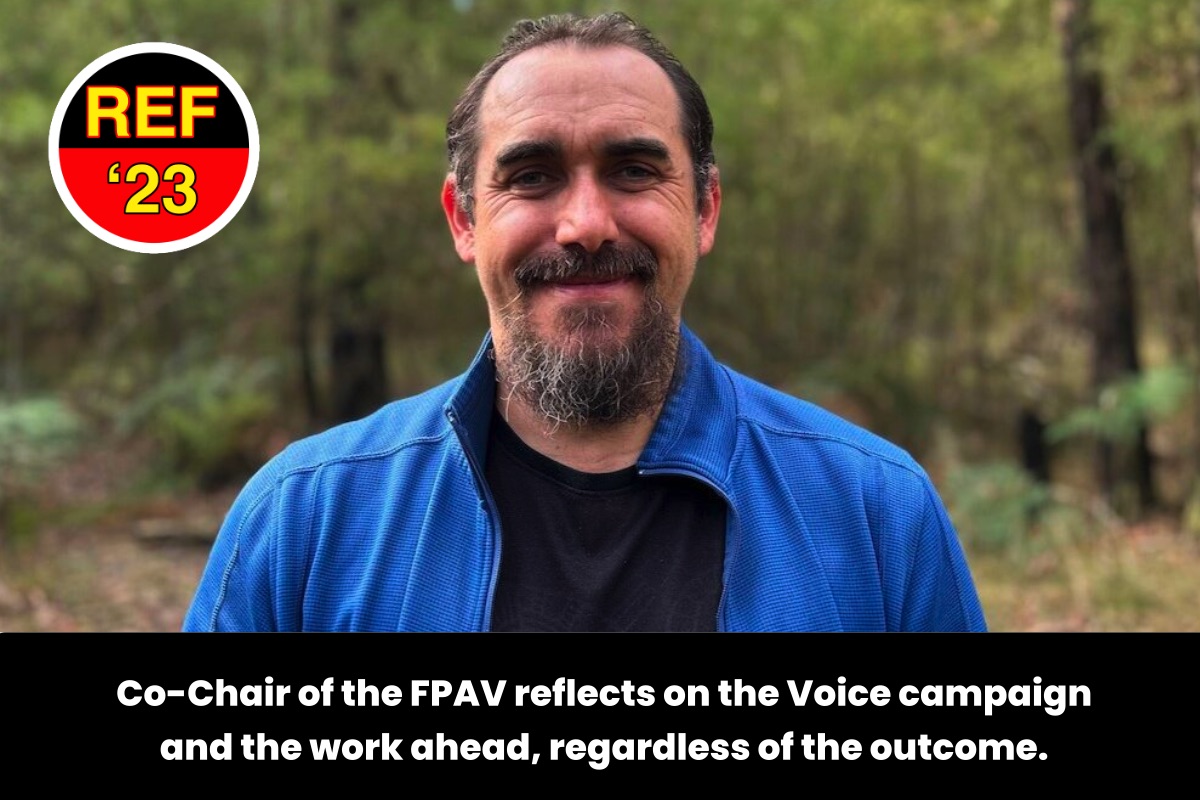
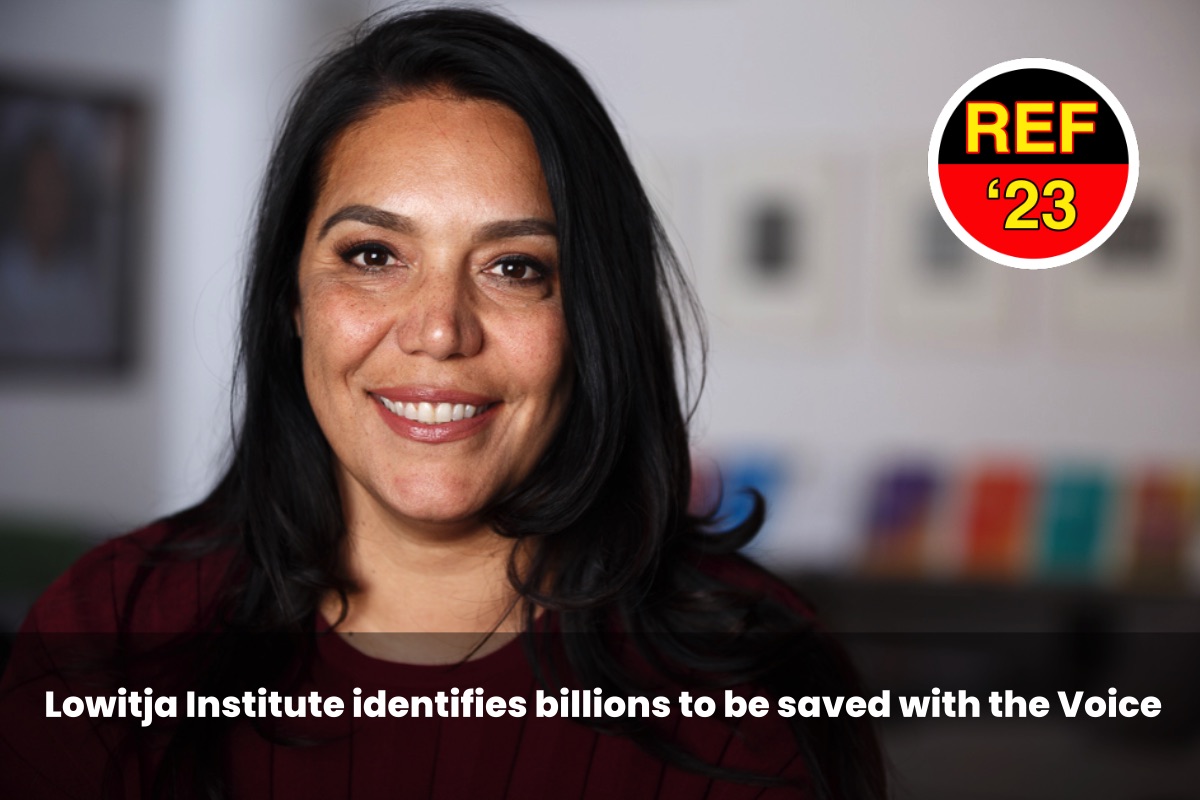
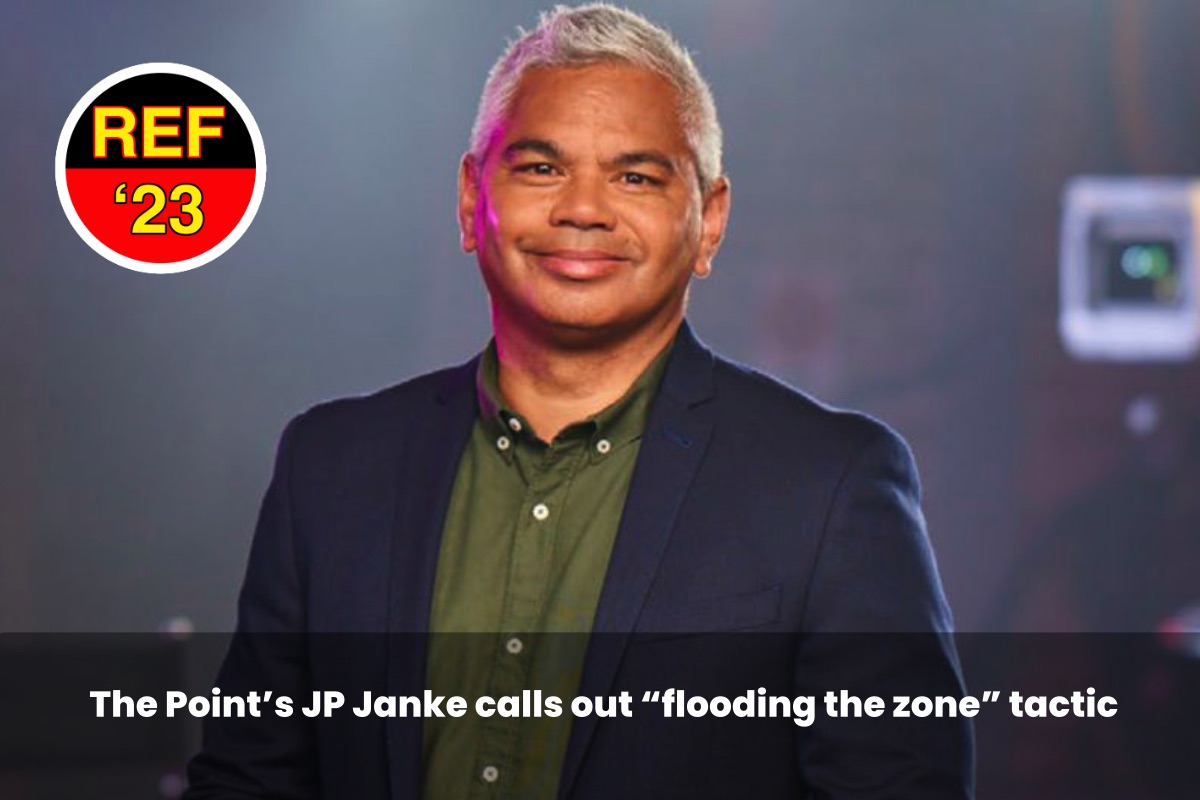
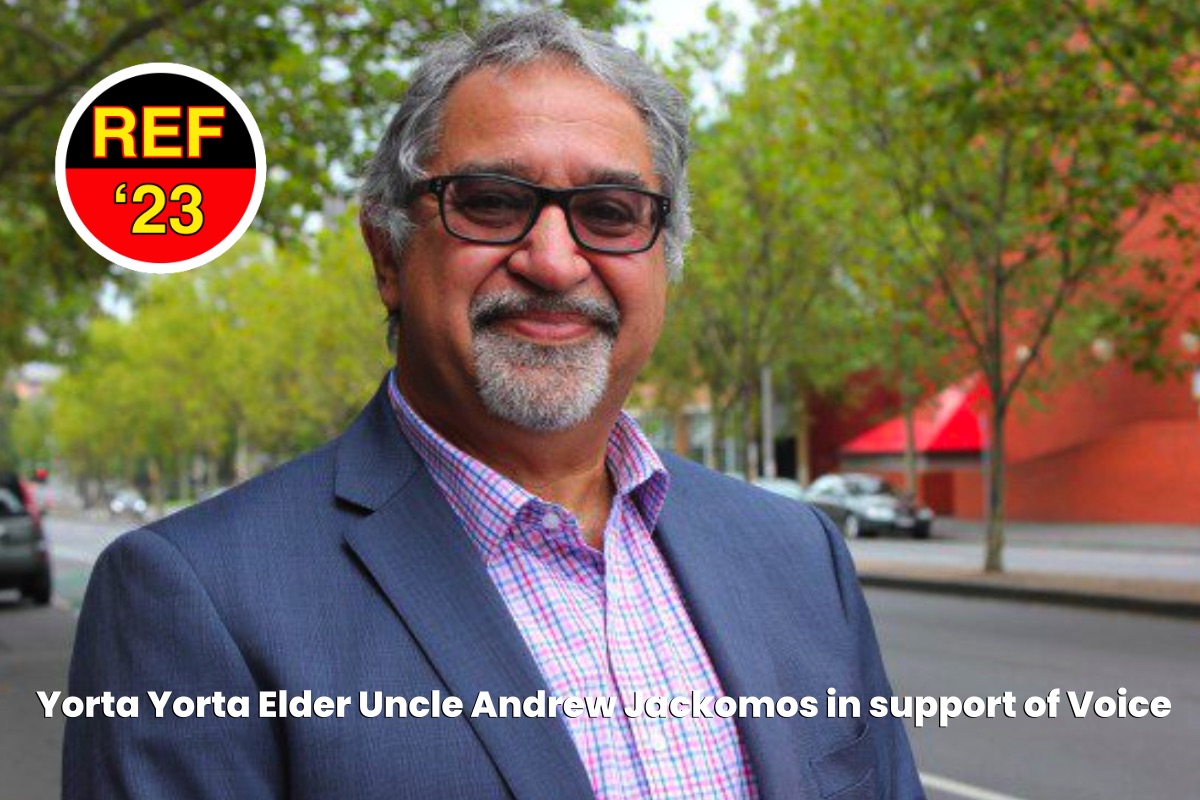
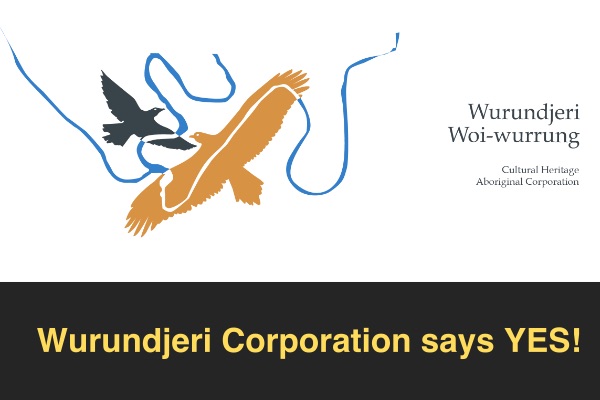

0 Comments